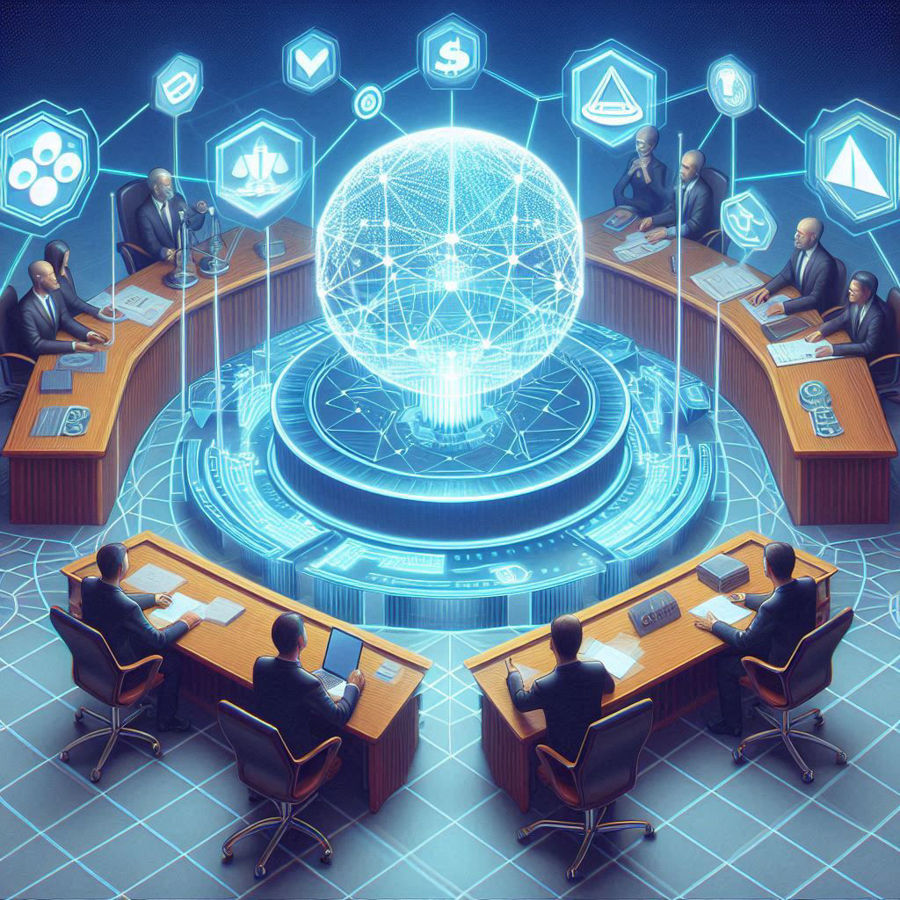
By Dr. Pooyan Ghamari, Swiss Economist
As we delve deeper into the digital age, Decentralized Autonomous Organizations (DAOs) are emerging as groundbreaking entities poised to transform governance frameworks. Utilizing blockchain technology, DAOs promote transparency, democratization, and collective decision-making, presenting a radical departure from traditional organizational structures.
The Concept of DAOs
DAOs function on the principle of decentralization, which distinguishes them from conventional organizations. At their core, they operate through smart contracts—self-executing agreements embedded in blockchain technology. These contracts automatically enforce the rules and governance of the organization without human intervention. Members of a DAO hold governance tokens that empower them to propose initiatives, vote on key issues, and steer the organization’s direction, creating an ecosystem of shared ownership and accountability.
Advantages of DAOs
DAOs bring forth numerous benefits that make them attractive alternatives to traditional governance models:
-
Transparency: Every decision and transaction within a DAO is recorded on a public blockchain, providing a transparent and immutable ledger of activities. This level of visibility fosters trust and accountability among participants.
-
Democratic Governance: DAOs promote inclusive decision-making, allowing all members to contribute their perspectives and vote on significant issues. This democratic approach enriches discussions and leads to more informed outcomes.
-
Operational Efficiency: By automating governance processes via smart contracts, DAOs reduce administrative overhead, streamline operations, and allocate resources more effectively, enhancing overall efficiency.
-
Global Inclusivity: DAOs transcend geographical barriers, enabling participation from diverse individuals worldwide. This global accessibility cultivates a rich exchange of ideas and perspectives.
Real-World Implementations of DAOs
DAOs are finding applications across various sectors, demonstrating their versatility and transformative potential:
-
Decentralized Finance (DeFi): DAOs serve as the governance backbone for many DeFi projects, allowing community members to vote on protocol changes, funding decisions, and strategic directions. This community-driven approach ensures that the development aligns with users' needs and interests.
-
Social Initiatives: DAOs are being leveraged for charitable and social impact projects, providing a transparent mechanism for tracking donations and resource allocation. This empowers contributors to see the direct impact of their contributions, ensuring accountability in philanthropic efforts.
-
Creative Enterprises: Artists and creators are utilizing DAOs to manage their works, ensuring fair compensation and direct engagement with their audiences. This model fosters community support and shared ownership of creative projects.
Challenges to Overcome
Despite their promising advantages, DAOs face several challenges that must be addressed for broader adoption:
-
Legal Uncertainty: The regulatory landscape for DAOs remains ambiguous in many regions, creating hurdles for compliance and legal recognition. Establishing clear regulations is essential for fostering trust and encouraging growth.
-
Security Risks: Smart contracts can be vulnerable to bugs and exploits if not thoroughly audited. Ensuring robust security measures is crucial to protect assets and maintain member confidence.
-
Scalability Issues: As DAOs expand, achieving consensus among a larger membership can become increasingly complex, potentially delaying decision-making processes.
-
Maintaining Engagement: High levels of member engagement are essential for a DAO’s success. Developing strategies to promote active participation and ensure diverse contributions is vital for effective governance.
The Future of Governance: DAOs in Perspective
DAOs represent a significant shift in governance paradigms, emphasizing collaboration, transparency, and community involvement. As technology evolves and regulatory frameworks adapt, DAOs have the potential to redefine organizational structures, empowering individuals and communities alike.
In conclusion, DAOs are more than a technological innovation; they symbolize a fundamental transformation in governance that values inclusivity and collective responsibility. As we look to the future, the influence of DAOs may extend beyond the digital realm, inspiring a rethinking of governance models across various sectors and promoting a culture of shared decision-making.
For more insights and smart investment opportunities, visit the original article here from this link. You can also find out about the latest news on A Land new section. Also for the latest trends in gold investment and to begin your journey into purchasing precious metals, visit EE Gold official website.
